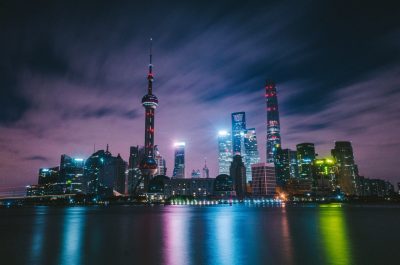By: Gage Schmid
The power struggle between the United States and China in the Asia-Pacific region is commonly explained in International Relations through Harvard professor Graham Allison’s Thucydides Trap concept. The concept outlines a tendency for an outcome of war when an emerging power threatens the displacement of an existing great power either regionally or internationally.
Viewing this conflict through Allison’s Thucydides Trap lens provides only a very limited understanding of the regional dynamics, ignoring the role of small powers. Beyond the dominant discourse of bipolarity, or the Thucydides Trap, scholars must consider multipolarity — the power struggles of multiple smaller actors. However, the theory still provides a necessary view that must be considered because the region’s emergence as a liberal order and its move toward complex interdependence requires an in-depth consideration of the context to avoid an incomplete interpretation of the puzzle.
Explaining the Asia-Pacific region primarily in terms of security dynamics — with the U.S. and China as major competitors to each other — has led policymakers in Washington and Beijing to believe that they are trapped in a zero-sum game in which only retreat can avert a conflict and war is otherwise unavoidable. Furthermore, this contributes to a revival of containment policy; each state seeks ways to counter the capabilities of the other in the region, leading to an intensification of regional security dynamics.
As a result, small powers caught in the crossfire must consider joining one of two camps, reinforcing the narrative of a new Cold War.
This gaffe could have serious consequences for the region’s security. As a result, understanding the changing power distribution in the region from a different perspective is critical.

As states’ aspirations change and are frequently influenced by the institutions of which they are members, there is a need to consider all possible discourses in order to understand the geopolitical complexities that this region poses, including the roles played by small states alongside the two great-power competitors. But despite China’s dismissal of the theory’s relevance in the region, the Thucydides Trap, and the possibility of war it entails, is the most applicable to the situation.
Both the name and the principle of the Thucydides Trap were derived from Thucydides’ description of the Peloponnesian war between Athens and Sparta. According to Thucydides, the war between the two was unavoidable due to Athens’ growing power, which had instilled fear in Sparta.
Allison applies a similar understanding to the U.S.- China power competition, believing that growing Chinese capabilities that pose a threat to the status quo maintained by the U.S. will lead to war.
Nonetheless, China has no intention of engaging in war with the U.S., as President Xi Jinping has firmly overruled this fearful apprehension and stated that China does not believe in any such so-called traps. He instead argued that such security dilemmas can come about if states “time and again make the mistakes of strategic miscalculation.”
Allison’s theory, however, differs from this viewpoint because he bases his speculation on the fact that power struggles between two parties alone can lead to war. Allison’s understanding was frequently referenced in academic spheres when the U.S. referred to China and Russia as revisionist powers in its 2017 National Security Strategy document and accused China of trying to dislocate America in the Indo-Pacific region. Together, these accusations point to China trying to restructure the region in its favor.
Though it is true that China has begun to pursue more aggressive foreign policy options over time, this is also the result of the U.S. forcing China to comply with Western standards and norms. China denies the U.S.’ allegations against it in the South China Sea, as well as the call to follow the United Nations Convention on the Law of the Sea.
Chinese policymakers have expressed dissatisfaction with the current order, which they believe favors the U.S. at the expense of China. Many academics believe that Xi Jinping should deviate from Deng Xiaoping’s policy of strategic patience in order to make China a great power in the international arena. As such, Chinese aggression could be triggered by the U.S. seeking to strengthen diplomatic ties with the region. These mounting struggles for hegemony in the region strengthen the case for Thucydides Trap.
Along with this, small states such as Taiwan that seek U.S. presence in the region have pushed China to be more aggressive in achieving its broader goals in the Asia-Pacific region. Since Taiwan’s independence, China has maintained a claim on it, citing the One China policy and asserting that the 1992 consensus calls for one country, two systems.
Nonetheless, Taiwan has repeatedly expressed its dissatisfaction with China’s claims, and the U.S. has consistently backed Taiwan. Importantly, during the 2019 Central Military Commission meeting, President Xi directed that the People’s Liberation Army be prepared for war— most likely as a response to efforts to obstruct China’s plans for reunification with Taiwan.
This has exacerbated tensions on both sides and increased the relevance of the Thucydides Trap thesis by adding yet another point of mounting uncertainty and power struggles to the Asia-Pacific region.
The Thucydides Trap may be a relevant framework for the Asia-Pacific, but it undoubtedly paints the region in a disappointing and dystopian light. It becomes a center of gravity in the power struggle between the U.S. and China. It has also increased the risk of a self-fulfilling prophecy as policymakers put the U.S. and China on a collision course out of fear of an inevitable, power struggle-induced conflict.
The emergence of China as a major rival to the U.S. in the region and abroad is undoubtedly alarming to the U.S. policymakers about China’s intentions. This part of the Thucydides Trap thesis is evident. It remains to be seen, however, whether the rest of the theory’s prediction will play out.
Foreign Affairs Feature is a collaboration project between The Daily Free Press and the International Relations Review























































































































